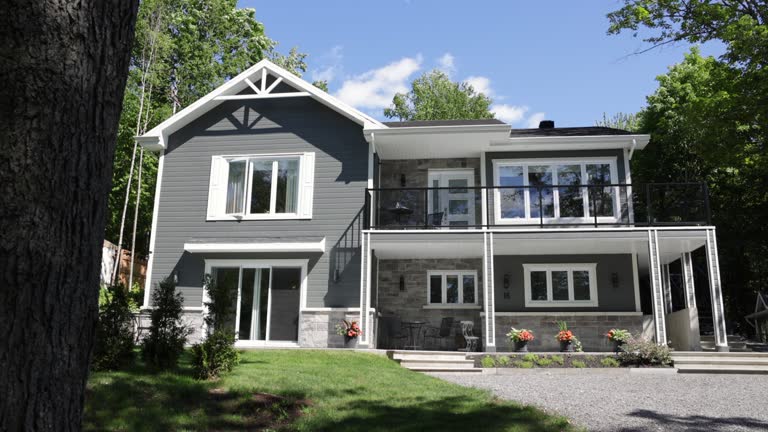Understanding property tax rules in Canada is essential for homeowners, investors, and tenants alike. These taxes, levied by municipal governments, help fund local services such as schools, road maintenance, fire departments, and public transportation. Property tax rules vary by province and municipality, but the general framework remains consistent across the country. In this comprehensive guide, we break down the intricacies of property tax rules in Canada, provide insights on how they are calculated, and offer links to explore related real estate opportunities.
Thank you for reading this post, don't forget to subscribe!What Is Property Tax in Canada?
Property tax is an annual fee paid by property owners to local governments. It is based on the assessed value of the property and is used to finance local infrastructure and services. Property tax rules in Canada are designed to ensure that those who benefit from public services contribute proportionally through property ownership.
Who Pays Property Taxes in Canada?
All property owners, including residents, businesses, and foreign investors, are required to pay property taxes. The taxes are generally calculated annually and billed semi-annually or quarterly depending on the region. Tenants indirectly pay property tax through rent, as landlords typically incorporate this cost into monthly rental fees.
How Are Property Taxes Calculated?
Property taxes in Canada are calculated using two key components:
- Assessed Property Value: Determined by a provincial assessment body such as MPAC in Ontario or BC Assessment in British Columbia.
- Municipal Tax Rate: Set by local governments and applied per $1,000 of assessed property value.
The formula is simple:
Property Tax = Assessed Value × Tax Rate
Municipalities may also levy additional charges for utilities, waste collection, or school board contributions.
Differences in Property Tax Rules by Province
Ontario
Ontario uses MPAC (Municipal Property Assessment Corporation) to assess property values every four years. Municipalities then set their own tax rates based on revenue requirements.
British Columbia
BC Assessment oversees the valuation process. Cities like Vancouver and Coquitlam apply unique tax rates and may offer grants or deferrals for senior citizens.
Explore apartments in Coquitlam: https://zameeninfo.com/property/modern-apartments-coquitlam-braemar/
Quebec
In Quebec, cities such as Montreal use their own property tax system, with annual reassessments and distinct rates for residential, commercial, and rental properties.
Check luxury Montreal rentals: https://zameeninfo.com/property/luxurious-montreal-apartments-for-rent/
Alberta
Alberta municipalities handle property valuation and tax setting independently. Calgary and Edmonton offer one of the lowest average property tax rates in Canada.
Nova Scotia
Nova Scotia includes a “Deed Transfer Tax” at the time of property purchase. Halifax uses annual assessments with published tax rates on its official portal.
Components of Property Tax Bills
Base Tax
This is the standard property tax applied based on assessed value and municipal tax rate.
Local Improvement Levies
These are additional charges for neighborhood improvements such as new roads, lighting, or sewer lines.
School Taxes
School boards in each province collect a portion of the property tax to fund public education.
Utility Charges
Some municipalities add charges for water, sewer, garbage collection, and recycling.
Property Tax for Rental Properties
Owners of rental properties are still liable for paying property tax, although they may be taxed differently than owner-occupied properties. In cities like Pointe-Claire and Chilliwack, different tax classes apply.
Explore Pointe-Claire options: https://zameeninfo.com/property/pointe-claire-apartments-luxury-comfort/ Check Chilliwack rentals: https://zameeninfo.com/property/bright-chilliwack-rental-basement-suite/
Property Tax and Foreign Buyers
Some provinces apply a Non-Resident Speculation Tax (NRST) or foreign buyer tax in addition to standard property tax rules. Ontario and British Columbia have implemented measures targeting non-resident buyers to cool the housing market.
Exemptions and Rebates
Seniors and Low-Income Households
Many provinces offer property tax deferral or rebate programs for senior citizens and those with low income.
Disability Tax Credit
Homeowners with disabilities may qualify for property tax relief.
Home Renovation Rebates
Some municipalities offer property tax relief or rebates for eco-friendly upgrades or major renovations.
How to Pay Property Tax
Property taxes can usually be paid through:
- Online banking
- Pre-authorized debit
- Post-dated cheques
- Mortgage company escrow payments
Missing payments can lead to penalties or even a tax sale of the property.
Penalties for Non-Payment
Failure to pay property tax can result in:
- Late fees and interest charges
- Liens against the property
- Tax sale proceedings
Municipalities are legally entitled to recover owed taxes by selling the property if payments are not made after a set period.
How to Appeal a Property Tax Assessment
If you believe your property is over-assessed, you can appeal through the designated provincial agency:
- Ontario: Assessment Review Board (ARB)
- British Columbia: Property Assessment Review Panel (PARP)
- Quebec: Tribunal administratif du Québec
Timelines and procedures vary, so it’s crucial to act quickly after receiving your assessment notice.
Strategies to Reduce Your Property Tax Burden
- Review Assessment Notices: Look for errors or overestimations.
- Renovate Wisely: Avoid unnecessary upgrades that increase value.
- Claim Exemptions: Apply for senior or low-income deferrals.
- Compare Similar Homes: Appeal if your assessment is out of line.
Comparing Property Tax Rules to Other Cities
Looking to explore affordable or premium real estate in Canada? These listings might interest you:
- Vancouver apartments with premium living: https://zameeninfo.com/property/vancouver-apartments-premium-city-living/
- Modern rentals in Coquitlam: https://zameeninfo.com/property/modern-apartments-coquitlam-braemar/
- Bright basement suite in Chilliwack: https://zameeninfo.com/property/bright-chilliwack-rental-basement-suite/
Frequently Asked Questions (FAQs)
Q: How do property taxes work in Canada?
A: Property taxes are annual payments based on your property’s assessed value and local tax rate. They fund municipal services such as education, waste management, and emergency services.
Q: Is property tax mandatory in Canada?
A: Yes, all property owners must pay property tax. Failure to do so can result in penalties, interest charges, or legal actions like property seizure.
Q: How much do you pay in property taxes in Canada?
A: The amount varies based on your location and property value. Average rates range from 0.5% to 2.5% of assessed value.
Q: How to avoid estate tax in Canada on property?
A: Canada doesn’t have an estate tax, but capital gains may apply. Transferring property into joint ownership or using trusts can help reduce tax liability. Consult a tax advisor for detailed planning.
Conclusion
Navigating property tax rules in Canada can seem overwhelming, but understanding the basics and keeping up with local changes can save you money and stress. From how taxes are assessed to how they’re paid—and even how they can be reduced—this guide gives you a solid foundation. If you’re exploring real estate options in cities like Montreal, Vancouver, or Coquitlam, it’s crucial to factor in local property tax rules to make informed financial decisions.







